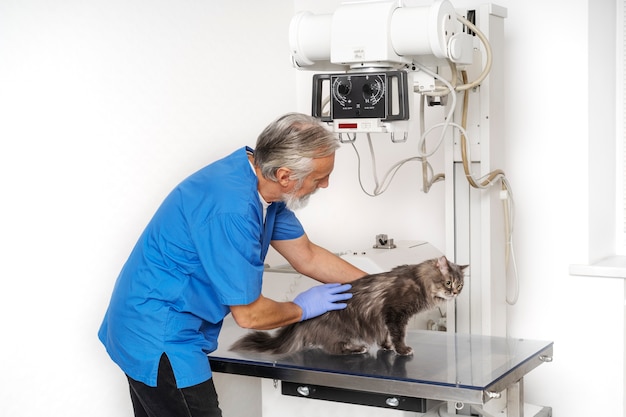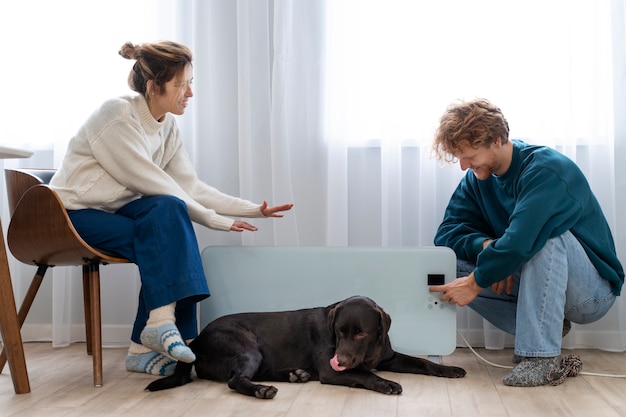Managing Pet Allergies During Philadelphia’s Humid August

Managing Pet Allergies During Philadelphia’s Humid August
Philadelphia’s August humidity brings not only sticky weather but also a surge in allergy symptoms for many pets. If you’ve noticed your dog or cat scratching more than usual, chewing their paws, or suffering from irritated skin, you are not alone; these signs often point to a spike in pet allergies in summer. At Liberty Veterinary Clinic, conveniently located at 8919 Ridge Avenue, Philadelphia, PA 19128, our veterinary team frequently helps families from Philadelphia and surrounding communities manage allergy flare-ups during this muggy time of year. In this guide, we will explore why pet allergies intensify in the summer, how to spot the signs, what local allergens are most problematic, and the steps you can take at home and with your veterinarian to provide much-needed relief. By the end, you will know how to help your pet feel comfortable and enjoy the season together.
If you are looking for a quality vet near me to support your pet’s health this summer, our team offers comprehensive care, including wellness examinations and tailored allergy management plans for both dogs and cats. Let’s delve into the world of summer allergies and how you can help your pet thrive despite Philadelphia’s humid conditions.
Recognizing the Signs of Pet Allergies in Summer
When the air gets heavy and pollen counts rise, pets often show clear signs of discomfort. Key symptoms of pet allergies in summer include frequent scratching or licking, red or inflamed skin, ear infections, watery eyes, and sneezing. Some pets may develop hot spots, which are areas of skin that become intensely irritated and may even ooze or scab over time. Others might chew at their paws or rub their faces against furniture and carpets in an effort to relieve itching.
For many families in Philadelphia, it is common to see these symptoms become more pronounced after walks in local parks or time spent in the backyard. Since cats tend to groom themselves more discreetly, their allergies might show up as hair loss, small scabs, or increased vomiting due to excessive grooming. No matter the presentation, if your pet is showing these signs as the summer humidity increases, allergies may be to blame.
Why Summer Humidity Triggers Pet Allergy Flare-Ups in Philadelphia
Understanding why allergies worsen in August begins with a look at Philadelphia’s climate and environment. The warm, wet conditions create a perfect breeding ground for molds, dust mites, and other microscopic allergens that thrive in humid air. Additionally, late summer brings a peak in weed pollen, particularly ragweed, which is a common trigger for allergic reactions in both people and pets.
Outdoor allergens are not the only concern; increased humidity inside your home can boost dust mite and mold populations, making it difficult for sensitive pets to escape exposure. The combination of spending more time outdoors and the persistence of indoor allergens leads to more frequent and severe symptoms. Some pets also develop sensitivities to flea bites during this season, as flea populations surge with the warmth and moisture. When you add in the possibility of food sensitivities or contact allergies from grasses, it becomes clear why pet allergies in summer are such a challenge for local families.
Professional Treatment and Pet Allergy Relief in Philadelphia
When home care is not enough, professional veterinary intervention is key to achieving lasting pet allergy relief in Philadelphia. At Liberty Veterinary Clinic, our veterinarians begin with a thorough history and physical examination to pinpoint possible triggers. We may recommend diagnostic tools such as skin scrapings, cytology, or allergy testing to determine whether your pet’s symptoms are due to environmental allergens, fleas, or other underlying health issues.
Treatment options are tailored to your pet’s specific needs and may involve prescription medications, such as antihistamines or corticosteroids, to control itching and inflammation. For pets with secondary skin infections, our veterinary team might prescribe topical or oral antibiotics. If fleas are a contributing factor, year-round flea prevention is essential; our pharmacy can recommend safe and effective products. In some cases, we may discuss immunotherapy, which gradually desensitizes your pet to specific allergens.
Regular wellness care plays a vital role in managing ongoing allergies. Scheduling a wellness care visit allows our veterinarians to monitor your pet’s progress, adjust treatments as needed, and provide up-to-date advice for seasonal changes. With the right approach, most pets can experience significant relief and resume their normal routines even during the most challenging months.
Home Strategies for Managing Pet Allergies in Summer
While professional care is essential, there are several steps you can take at home to reduce your pet’s exposure to allergens and provide comfort between veterinary visits. Bathing your pet with a gentle, hypoallergenic shampoo can help remove pollen and other irritants from their coat. Wiping your dog’s paws and belly after walks, as well as keeping indoor areas clean and free of dust, can further limit allergen contact. For cats, regular brushing can prevent mats and reduce the amount of allergen-laden fur they ingest during grooming.
Flea prevention is especially important in humid climates like Philadelphia’s. Use veterinarian-recommended flea control products consistently, and wash your pet’s bedding frequently in hot water. Consider using a dehumidifier to keep indoor air dry, which discourages the growth of dust mites and mold. If your pet has food sensitivities, work with our veterinary team to identify safe dietary options.
Making these small lifestyle adjustments can significantly enhance the effectiveness of professional allergy treatments and help maintain your pet’s comfort throughout the summer.
When to Seek Veterinary Care for Your Pet’s Allergies
Knowing when to call your veterinarian is crucial for your pet’s health and happiness. If your pet’s allergy symptoms are persistent, worsening, or interfering with daily activities—such as eating, sleeping, or playing—it is time to schedule an appointment. Warning signs that require immediate attention include raw or bleeding skin, sudden swelling of the face or paws, difficulty breathing, or signs of pain. These may indicate a more serious allergic reaction or secondary complications that need prompt evaluation.
Remember, managing pet allergies in summer is a team effort between you and your veterinary professionals. The sooner you seek help, the sooner your pet can find relief and avoid long-term complications. For urgent concerns, Liberty Veterinary Clinic also offers emergency veterinary care to address acute symptoms that cannot wait for a scheduled visit.
Supporting Your Pet’s Comfort All Season Long
No one wants to see their pet suffer from constant itching or discomfort as summer humidity peaks in Philadelphia. By recognizing the signs of allergies, understanding local triggers, and taking proactive steps at home and with your veterinarian, you can make a meaningful difference in your pet’s wellbeing. Our team at Liberty Veterinary Clinic is committed to providing the highest standard of care, whether you need a routine allergy check or advanced allergy management for your dog or cat.
If you are searching for a vet near me who understands pet allergies in summer and offers compassionate, personalized treatment plans, we invite you to reach out. You can schedule an appointment for a comprehensive pet exam or wellness care visit to discuss your pet’s symptoms and get tailored advice. Call us at (215) 483-1066 or visit us at 8919 Ridge Avenue, Philadelphia, PA 19128 to get started on your pet’s path to comfort and health. Together, we can ensure lasting pet allergy relief in Philadelphia and surrounding communities, allowing your furry friend to enjoy every season to the fullest.
For more information on how our veterinary services near me can support your family, explore our resources or contact our knowledgeable team of veterinarians today.


















